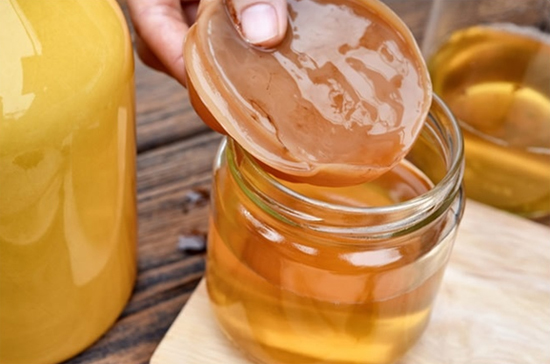Is kombucha really good for you?
Kombucha is a tea beverage that has undergone fermentation and sweetening. While it is not for consumption by everyone, it is generally safe and offers plenty of health benefits.

The fermented beverage is made from black tea, green tea, or white tea. A sweetener is added, followed by a symbiotic culture of bacteria and yeast that ferments the mixture over the course of three to 30 days.
The fermentation process turns sugar into ethanol. However, the alcohol content of kombucha is very low compared with proper alcoholic drinks. A glass of beer has 10 times the alcohol content of kombucha.
Tea is a very healthy drink that offers many health benefits such as protection from cancer, strengthening of the bones, reduction of fat, and prevention of cardiovascular disease. Many of these benefits are passed on to kombucha.
Kombucha contains acids, vitamins, and polyphenols like catechins. It also contains more antioxidants compared with ordinary tea. Catechins and other polyphenols are antioxidants that prevent the onset of cancer and other diseases.
Fermentation also produces new substances like D-saccharic acid-1,4-lactone. This compound can inhibit an enzyme involved in the growth of cancer cells.
Kombucha, the so-called “tea of immortality”
Many studies suggest that kombucha is an antimicrobial, detoxifying, and energizing drink. Some of the diseases it may help prevent include cancer, heart disease, and Type 2 diabetes.
The various components of this fermented drink make it good at preventing broad-spectrum metabolic and infectious disorders. These components have antioxidant activity as well as the ability to support the immune system.
Black and green tea kombucha can also inhibit the growth of harmful microorganisms or kill them outright. A 2012 study by Ecole Nationale d’Ingenieurs de Sfax researchers identified green tea kombucha as a more effective antimicrobial. The drink can also kill pathogenic bacteria associated with food poisoning.
Kombucha can be an alternative way to treat cancer. It can stop a tumor from obtaining a constant supply of blood, preventing the cancer from getting too dangerous.
The drink can also protect the liver by improving the functions of the organ and minimizing the harm caused by toxins that accumulate in it.
Regular consumption of kombucha cam improve heart health within 30 days. The fermented tea reduces bad cholesterol and increases its counterpart.
Kombucha can slow down the breakdown of carbohydrates into sugar. This helps decrease blood sugar levels for patients with diabetes and other metabolic diseases.
Because it is a fermented drink, kombucha contains plenty of probiotics like Lactobacillus. These good bacteria and yeasts can improve various processes that take place in the gut.
Some of the drawbacks of kombucha
Kombucha has a few disadvantages. It is a sweetened drink, so it contains a lot of sugar. A study revealed that as much as 19 percent of the sweetener can still be detected in it by the 21st day of fermentation.
Furthermore, some manufacturers add fruit juices or sugar to the fermented drink for flavor or sweetening so it is advisable to check the nutrition facts and go for the low-sugar kombucha.
Fermenting kombucha for very long periods of time also increases its acid content. People with HIV or weak immune systems should avoid these types of kombucha. A number of people have experienced a range of reactions to kombucha, with the most serious ones involving liver damage and death. It is therefore not recommended for pregnant or lactating women.
Despite these drawbacks, kombucha is a good, healthy drink with far more benefits than drawbacks. If consumed in the right amounts, it could help improve health.
yogaesoteric
February 6, 2020
